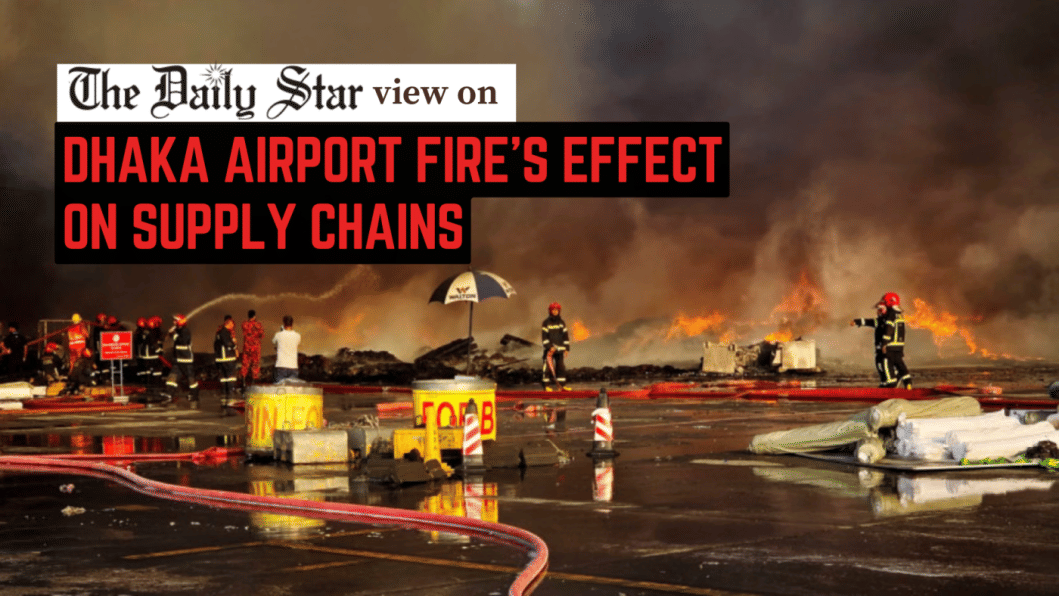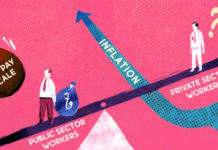
Last update on: Mon Oct 20, 2025 08:29 PM

It goes without saying that the devastating blaze that gutted the import section of Dhaka airport’s main cargo village has struck at the heart of Bangladesh’s manufacturing sector, perhaps at the worst possible time. The incident threatens to derail peak-season garment shipments for Christmas sales in a global supply chain built on speed. The initial estimate of $1 billion damage in the fire, which industry insiders fear may rise, tells only part of the story, however. This catastrophe is the third blow to business confidence in a week, following fire incidents at factories in Chattogram and Dhaka’s Mirpur area, both linked to garment production. Meanwhile, Chattogram port saw a steep tariff increase come into effect, and subsequently a truckers’ strike, paralysing the country’s main trade artery. That comes on top of persistently elevated inflation, high interest rates, and a 20 percent tariff on exports to the US, Bangladesh’s largest market.
The crisis set off by the airport fire extends beyond garments. The pharmaceutical industry, reliant on temperature-sensitive, time-bound raw materials from abroad, faces production disruptions. Losses are also mounting in telecoms, with consignments of high-value mobile components worth millions reduced to ash.
In response, industry leaders and the government said they were in emergency mode. The Bangladesh Garment Manufacturers and Exporters Association has secured temporary warehouse space and urged members to clear imports within 36 hours to ease congestion. The government has ordered the cargo village to operate 24/7. Whether these palliative measures will suffice remains to be seen. The deeper question, though, is not what caused the fire, but how resilient Bangladesh’s supply chain really is. This demands a fundamental reassessment of the regulatory systems meant to protect our economic assets.
The government must move expeditiously to avert a repeat of such failures. To restore confidence, the first priority is to provide tangible support to the business community—through a streamlined process for registering losses and expediting insurance settlements. Moreover, the investigation into the airport fire must be credible and conclusive, addressing the unresolved questions of sabotage versus negligence. Contradictory accounts of the firefighting response demand nothing less.
The more enduring task would be to confront the abysmal state of fire safety that this tragedy has laid bare. A one-off audit of the airport is therefore not enough. Bangladesh needs a mandatory, nationwide fire safety review of all critical economic infrastructure, including ports, EPZs, warehouses, and major factories. The government must then mandate modern, automated suppression systems and enforce a time-bound compliance schedule. Finally, to salvage its international reputation, Bangladesh must communicate its action plan clearly to global partners. A high-level, cross-ministerial task force should be established to oversee this reform agenda, with the mandate not only to manage the crisis but also to harden the nation’s economic infrastructure against future shocks.









